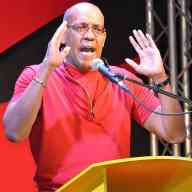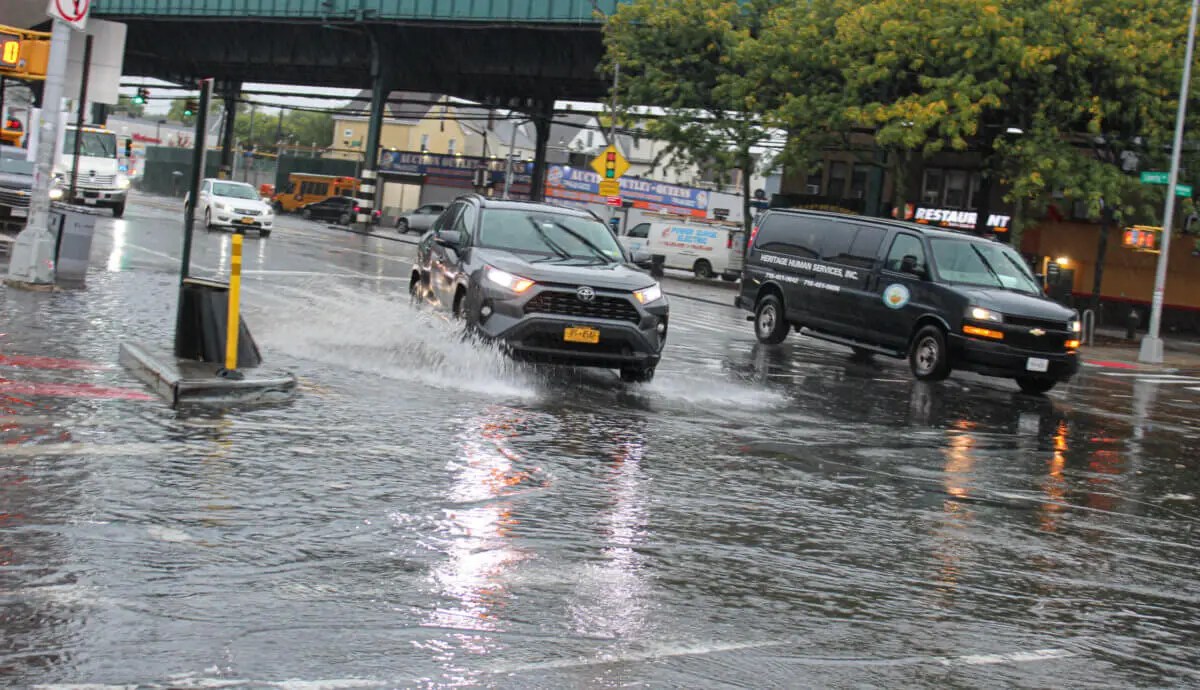Antigua
An amnesty program in Antigua and Barbuda geared towards giving non-nationals the opportunity to regularize their status has been extended.
According to acting Chief Immigration Officer Annette Mark, during this grace period, it is hoped that persons will regularize their status.
“The amnesty is a pardon,” she said.
“Basically, it’s for those persons whore are here illegally, those persons who have gaps in their time and persons who have applied already to the passport office and have been denied,” Mark said.
She said it was decided that the deadline would be set to September 15, 2015, giving the individuals at least 90 days to be informed.
The amnesty was granted to non-nationals under the Immigration and Passport (Amendment) Act 2015 on April 8 this year.
Bahamas
The Bahamas government is questioning reports of child abuse in the country, while acknowledging “the level of child abuse in our country remains unacceptable.”
The Ministry of Social Services and Community Development said a recent newspaper article headlined “Activists Calls for Clearer Details on Rise in Child Abuse: makes reference to a 22 percent increase in child abuse cases.
“The ministry wishes to advise the public that child abuse statistics are not static; they fluctuate depending on any number of things. Indeed, the number of child abuse cases reported to the Department of Social Services in 2011 and 2012 were 636 and 663 respectively, which are higher than the reported 597 cases in 2014.
“Sadly, the level of child abuse in our country remains unacceptable. The Department of Social Services of the Ministry of Social Services and Community Development has responsibility for investigating reported cases expeditiously.”
Barbados
Minister of Education, Science and Technology, Ronald Jones, has hinted that changes will be coming in September to address the use of cell phones in schools in Barbados.
The minister said this would not be in any wanton way but would be to ensure the use of the technology with a sensible set of policies.
Observing that there were contradictions with respect to cell phones in school, Jones said; “I can see photos and videos of a class and teachers on their cell phones in front of the children. I can see that… That is the contradiction of our reality.”
Acknowledging that this is an era of technology that was constantly changing, the minister stressed: “We can’t shut children away from technology use and particularly that for educational use. If we look at how it is used sometimes we would day we can’t do it. But it would take a whole day to go through every bag in every school searching for a cell phone or some other piece of technology”.
The education minister contended that we had to consider a wider policy that zeroed in on learning that still had built into it certain controls.
“You can’t take out your cell phone in the classroom and make a call just like we say to the teachers you can’t be using the classroom to make calls in front of the children,” he said.
“Schools themselves will have to monitor, police and support the transition that will come. It is because of the educational value that we will also have to get in stride,” Jones added.
Grenada
Grenada will be the beneficiary of US$1.587 million charitable aid package from the Vatican.
This was announced by Cardinal Renato Raffaele Martino, Grand Prior of the Constantinian Order and protodeacon of the Holy Roman Church and inter-faith campaigner Sir Anthony Bailey, during a courtesy visit to Prime Minister Dr. Keith Mitchell recently.
The charitable projects include the complete restoration and rehabilitation of the Grenada Public Library in St. George’s, the New Life Organization (NEWLO) vocational training project, the St. Joseph’s Convent Education and Training Project, St. Patrick Roman Catholic Church, the Dorothy Hopkin Home for the Disabled, Top Hill Home in Carriacou, Grand Anse Home for the Aged, Grand Anse Girl’s Center and other worthy projects.
In receiving the support, Prime Minister Mitchell said that he “was moved by their generosity, especially since the projects will affect many of the most vulnerable among us.”
The cardinal and team thanked Mitchell for his visit to the Vatican last year, and expressed how beneficial the visit has been to both sides in forging a relationship and helping to strengthen the Vatican’s charitable presence in the region.
The delegation from the Holy See also announced that Rome has already taken the decision to create a delegation, headed by one of the visiting archbishops, especially for Caribbean affairs.
Guyana
The Guyana government says it will soon table the controversial Anti-Money Laundering and Countering the Financing of Terrorism (AMLCFT) (Amendment) Bill in Parliament.
Legal Affairs Minister and Attorney General Basil Williams, who held talks with United States Charge d’Affaires Bryan Hunt recently, said the new government is working towards laying the bill in the national Assembly soon.
He said the legislation will proceed through the parliament “swiftly” whether or not the main Progressive party (PP) legislators are present or not.
The PP has said it will boycott the parliament claiming the May 16 regional and general elections were flawed.
The party lost power after 23 years in office.
In the last parliament, the then opposition, A Partnership for National Unity (APNU) and the Alliance for Change (AFC) used their one seat majority to vote against the legislation after indicating that their concerns were not being addressed by the then government.
Jamaica
Russia has promised to help Jamaica restore its mined-out bauxite land to full agricultural production. It also plans to share its technology to boost the island’s agriculture and help address its environmental issues.
Minister of Science, Technology, Energy, and Mining, Phillip Paulwell made the disclosure when he attended the 19th St. Petersburg International Economics Forum in Moscow where he met with representatives from the Russian government to strengthen cooperation in specialized areas.
“I held discussions with the Agriculture Minister (Alexander Tkachov). That discussion was very productive. The minister has pledged to assist us with restoring our mined-out (bauxite) lands to become fully productivity,” Paulwell said.
“He promised to share with us the latest Russian technology and expressed hope that both livestock and food crops can be exported from Jamaica to Russia,” the minister added.
He said that coming out of the talks with Russia’s Minister of Natural Resources and Environmental Protection, Sergi Donski, an agreement has been reached to provide support to the island on environmental issues.
St. Lucia
St. Lucia is the latest Caribbean country to report a jump in tourism numbers.
The Caribbean Tourism Organization (CTO) announced that visitor arrivals to the region were up by six percent at the first quarter, with St. Lucia recording a 6.4 percent growth over the same period last year.
St. Lucia officials have reported that the growth has continued past the first quarter, with a 1.4 percent and 7.2 percent increase recorded in April and May respectively.
At the end of the first five months of the year, total stay-over arrivals to the island was 159,077; up 5.5 percent from the same period in 2014.
The figures recorded in the first four months were the highest for these months ever recorded in the island’s history. The 29,658 arrivals recorded in May this year, was also the highest figure for that month in the last five years.
Tourism Minister Lorne Theophilus said the North American Market has been extremely buoyant this year, with Canada recording a 10 percent increase in arrivals year-to-date and the United States nine percent, stemming largely from the increase to airlift and strategic marketing approach within the respective markets.
Europe, however, has not fared as well as other source markets, with marked declines in arrivals from the United Kingdom and Germany along with other European countries being recorded several months this year.
Tourism officials say targeted promotions and marketing campaigns planned for later this year should result in increased arrivals from these markets.
Trinidad
Government has proposed amended legislation to eliminate the need for nationals to fill out immigration declaration forms on entry in Trinidad and Tobago.
Minister of Trade and Investment Vasant Bharath told a media conference that returning nationals and citizens of T&T may now be able to avoid long, frustrating lines at local airports.
“Cognizant of the many long lines that occur on many occasions in both Immigration and Customs for passengers returning to T&T at Piarco Airport and the consequent frustration and anger that it causes among many returning passengers, Cabinet has considered the issue of the removal of forms for immigration purposes for returning nationals who will no longer need to fill out declaration forms,” Bharath said.
It is currently a requirement for anyone entering T&T, including nationals, under The Immigration Act Chapter 18:01 to fill out passenger declaration forms.
The immigration regulations provide that every person before being permitted to enter or remain in T&T shall complete a declaration form.
Passengers arriving in Trinidad who are not T&T nationals or citizens will now be required only to fill in a customs declaration form as is required by Customs Division.
Turks and Caicos
Head of the failed Jamaican investment scheme Olint, David Smith was ordered extradited to the United States where he recently appeared in court.
The judge, Clinton Warner, ordered the extradition to answer to charges of money laundering. However, he refused the request for his extradition on wire fraud charges.
The wire fraud charge carries a sentence of 20 years, while the money-laundering charge carries a 10-year sentence.
One of the attorneys representing Smith, Oliver Smith says his client was sentenced as part of a plea bargain agreement and the legal team plans to challenge the extradition proceedings in the Turks and Caicos Island High Court.
The Olint investment scheme, which extended across the United States and the Caribbean and had about 6,000 investors, was a massive Ponzi scheme, in which Smith paid returns to investors not from profit but from their own money or that paid by subsequent investors.
The funds, transferred to his personal bank accounts, reportedly enable Smith to live a lavish lifestyle.
In 2010, Smith was sentenced to six years in a Grand Turk prison, but he only spent four years because of good behavior.
In 2011, he was extradited to the U.S., where he pleaded guilty to 18 counts of money laundering, four counts of wire fraud and one count of conspiracy to commit money laundering.
— Compiled by Azad Ali























